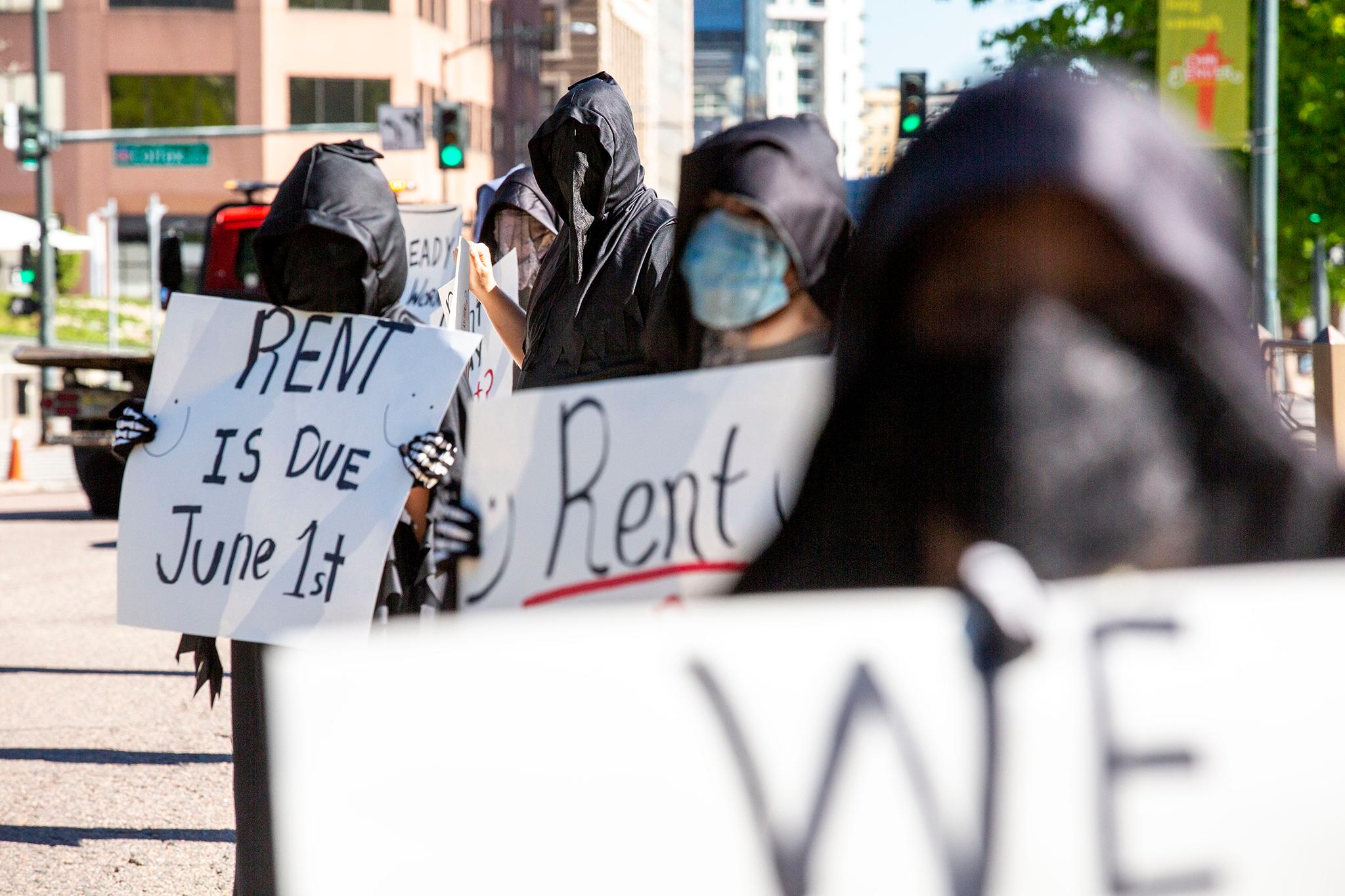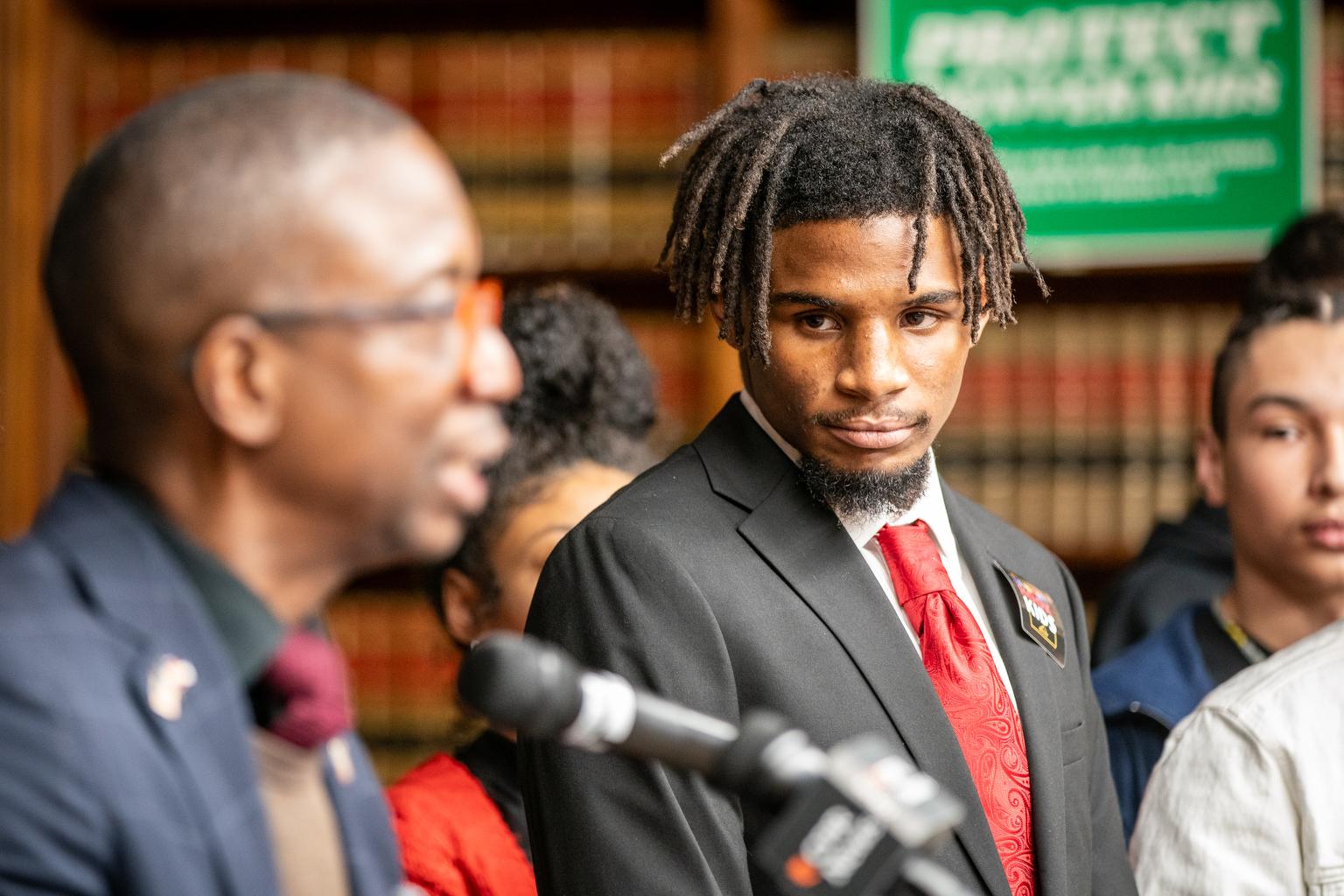Sheriff's deputies are authorized to carry out evictions in Denver again, ending a nearly four-month period in which city law enforcement didn't remove people from their homes for failing to pay rent and other lease violations.
Denver's public officials were among the first in Colorado to place limits on evictions during the pandemic, when city leaders ordered deputies to stop removals March 16. Soon afterward, Gov. Jared Polis issued the first of several statewide orders to slow down evictions.
But the statewide evictions ban lapsed in June, and Denver Public Safety Director Murphy Robinson signed an order on July 1st that will allow law enforcement in Denver to resume their regular duties, too.
In short, the capital city will not attempt to stop the resumption of eviction cases that is happening this month in Colorado. Jefferson County also is following a similar policy, and housing advocates said other agencies throughout the state are resuming evictions too.
In Denver, "it wasn't an easy decision. All the leaders in the city weighed in on it, and they decided that the rights of the property owners were as important," said Kelli Christensen, spokesperson for the Department of Public Safety.
"It's not an easy decision to make one way or another -- but they decided to follow the state," Christensen said.
The Denver Sheriff's Department has only a few evictions on its list right now, but that could change quickly.
In the last week, local courts have issued between three and five orders for removal, according to sheriff's spokesperson Daria Serna. Law enforcement only carries out evictions after the cases have been decided by judges in court.
"I think we're going back to business as usual, and as we get court documents we will go through the process as we normally have," Serna said.
Those cases likely began before the coronavirus lockdown, according to Javier Mabrey, an attorney working with the COVID-19 Eviction Defense Project. Cases for people who failed to pay rent in February and March may have lingered in the courts during the lockdown, he said, and now are resuming.
"This could be something like a case that was decided before the pandemic, it could be something that was in March, it could be a case that was in April before the governor issued an eviction ban," Mabrey said.
Still, a wave of new cases could hit the courts within weeks.
Tom Snyder, who co-founded and serves on the board of the nonprofit Colorado Law Project, said the early evictions also could be for non-rent issues, such as illegal activity. But he's preparing for a "likely onslaught" by the end of the month, he said.
"We'll see what the volume is like and we'll see how courts will treat it." Snyder said Denver court proceedings will likely still be remote when the first new nonpayment cases come before judges after July 15. Denver courts are using Microsoft Teams software to communicate and have prepared instructions for tenants and landlords on how to get into the system for a hearing.
"Accessibility, I'm nervous about," Snyder said, adding that "solid broadband" will be necessary. "It will be a technical challenge for sure, especially in the early days," he said. "We're going to monitor the process and we're going to provide feedback to the courts."
Landlords were largely banned from starting new evictions until June 14. Then, they were allowed to post payment notices on renters' doors. Those notices gave renters 30 days to repay their back rent -- meaning that landlords could begin to file eviction claims starting next week.
If you are unsure whether an eviction case is pending against you, Mabrey said to call your county court to ask about cases against you. Tenants also can inquire with their landlord.
"If you remember receiving a notice, or you remember receiving anything from the court, anything that looked official, you should contact the Denver city and county courts," Mabrey said. Eviction cases generally include a court hearing. But once the judge issues a writ, it becomes much more difficult for tenants to fight back, Mabrey said.
Mabrey's group has heard from hundreds of people who are concerned that they'll be evicted, he said.
Ultimately, Denver leaders acknowledged that tenants weren't the only ones facing financial pressure, Christensen said. They had "heard from property owners who are facing foreclosure because people aren't paying the rent," she said. Robinson is "not telling the sheriff to rush out and make all this happen right now."
Donna Bryson contributed to this reporting.












